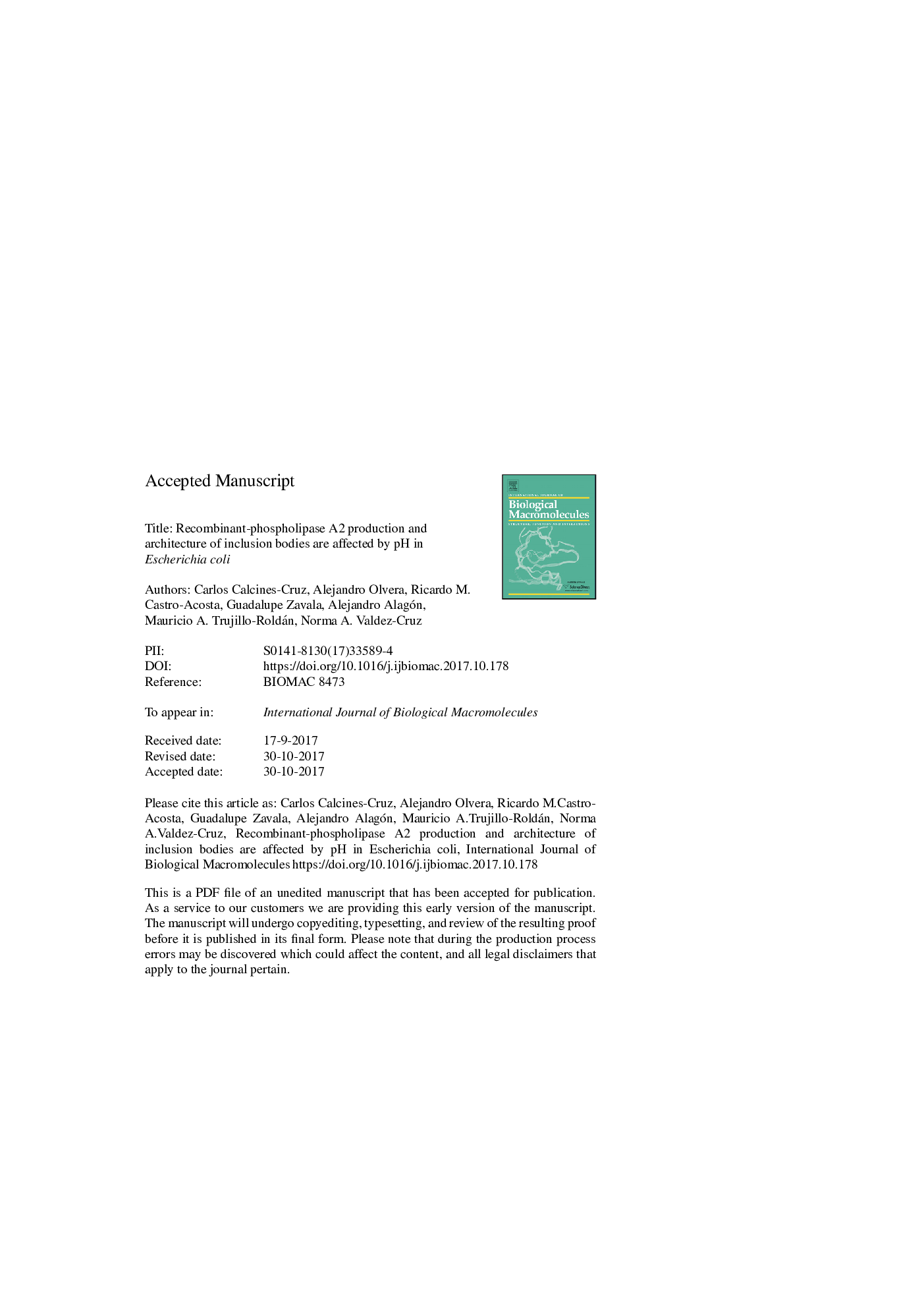| کد مقاله | کد نشریه | سال انتشار | مقاله انگلیسی | نسخه تمام متن |
|---|---|---|---|---|
| 8328651 | 1540206 | 2018 | 36 صفحه PDF | دانلود رایگان |
عنوان انگلیسی مقاله ISI
Recombinant-phospholipase A2 production and architecture of inclusion bodies are affected by pH in Escherichia coli
دانلود مقاله + سفارش ترجمه
دانلود مقاله ISI انگلیسی
رایگان برای ایرانیان
کلمات کلیدی
موضوعات مرتبط
علوم زیستی و بیوفناوری
بیوشیمی، ژنتیک و زیست شناسی مولکولی
زیست شیمی
پیش نمایش صفحه اول مقاله

چکیده انگلیسی
Aggregation of recombinant proteins into inclusion bodies (IBs) is the major drawback of heterologous expression in Escherichia coli. Here, we evaluated the effects of a pH shift after expression induction on recombinant phospholipase A2 production and its aggregation in IBs in E. coli Origamiâ¢, as compared to cultures with pH maintained at 7.5 or uncontrolled pH. Cultures shifted from 7.5 to pH 6.5 or 8.5 produced â¼15-25% less biomass as compared with those kept at 7.5 or without pH control. The cultures shifted to pH 8.5 showed a â¼50% higher yield of acetate per biomass, and the rPLA2 yield was improved 2.4-fold. Purified IBs formed at pH 8.5 containing â¼50% of rPLA2, were more susceptible to proteinase-K cleavage and bound less thioflavin-T, indicating lower amyloid content, with the concomitant enrichment of α-helical and random-coil secondary structures, as demonstrated by FTIR. Moreover, only one IB per cell was formed at pH 8.5; instead, more than two were observed under the other culture pH conditions. Nevertheless, under uncontrolled pH conditions, â¼300 nm larger IBs were observed. Our work presents evidence of the usefulness of recombinant protein expression cultivated at pH 8.5 allowing the reduction of amyloid content in IBs.
ناشر
Database: Elsevier - ScienceDirect (ساینس دایرکت)
Journal: International Journal of Biological Macromolecules - Volume 108, March 2018, Pages 826-836
Journal: International Journal of Biological Macromolecules - Volume 108, March 2018, Pages 826-836
نویسندگان
Carlos Calcines-Cruz, Alejandro Olvera, Ricardo M. Castro-Acosta, Guadalupe Zavala, Alejandro Alagón, Mauricio A. Trujillo-Roldán, Norma A. Valdez-Cruz,